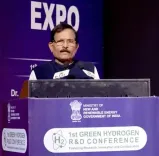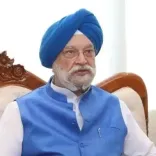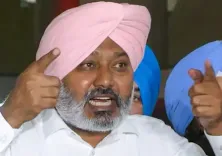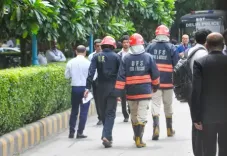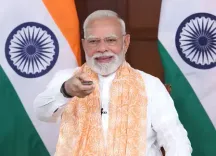How Will Iceland's Collaboration Enhance India's Blue Economy?
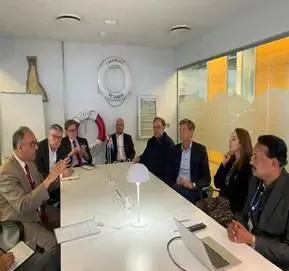
Synopsis
Key Takeaways
- Strengthened collaboration between India and Iceland in fisheries.
- Focus on sustainable practices and zero-waste models.
- Opportunities for technology transfer in aquaculture.
- Investment potential in the Icelandic seafood processing sector in India.
- Increased training in deep-sea fishing technologies.
New Delhi, Sep 12 (NationPress) - India and Iceland are poised to strengthen their partnership in the realms of fisheries and aquaculture, focusing on sustainable methods, zero-waste initiatives, technology transfer, and cluster-based development, as announced by the government on Friday.
Leading the Indian delegation, Dr. Abhilaksh Likhi, Secretary of the Department of Fisheries, wrapped up a three-day official visit to Reykjavík, Iceland, aimed at bolstering bilateral cooperation through strategic alliances, investment opportunities, and innovation sharing, according to an official statement.
During his visit, Likhi engaged with senior officials from the Iceland Ocean Cluster to discuss collaborative innovations in fish processing, value addition, traceability, and certification. Noteworthy Icelandic firms, BRIM and Hampiðjan, shared insights into their state-of-the-art zero-waste models and advanced processing technologies.
“Both parties delved into investment prospects for the Icelandic seafood processing sector within India, as well as strategies to enhance business-to-business (B2B) connections,” the statement noted.
The delegation also toured MATIS, Iceland’s premier food and biotech R&D institute, to explore cooperation in biotechnology, food safety, and marine resource utilization. This visit opened new pathways for collaboration in research and technology transfer aimed at enhancing India’s fisheries value chain, the release highlighted.
Additionally, emphasis was placed on training and capacity building in deep-sea fishing technologies, alongside the implementation of advanced vessel monitoring and surveillance (VMS) systems, according to the Ministry of Fisheries.
Both sides examined opportunities in deep-sea fishing technologies, vessel monitoring systems, trout farming, and innovative tuna practices for India’s islands.
The government has adopted a cluster-based development strategy under the PMMSY, with 34 clusters identified to date. This approach boosts competitiveness and efficiency by connecting geographically linked businesses of all sizes—micro, small, medium, and large—across the entire value chain, from production to export.
India's total fish production has surged by 104 percent, increasing from 96 lakh tonnes in 2013–14 to 195 lakh tonnes in 2024–25. Inland fisheries have also expanded by 142 percent during the same period, jumping from 61 lakh tonnes to 147.37 lakh tonnes, according to government data.
As a result, India now ranks as the second largest fish producing nation globally, contributing approximately 8 percent of the world’s total output.
IANS
aar/


